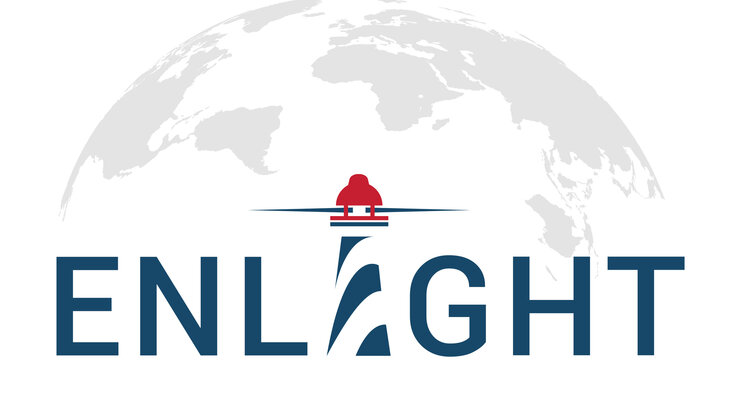-
Faculty of Arts and HumanitiesDean's Office, Faculty of Arts and HumanitiesJakobi 2, r 116-121 51005 Tartu linn, Tartu linn, Tartumaa EST0Institute of History and ArchaeologyJakobi 2 51005 Tartu linn, Tartu linn, Tartumaa EST0Institute of Estonian and General LinguisticsJakobi 2, IV korrus 51005 Tartu linn, Tartu linn, Tartumaa ESTInstitute of Philosophy and SemioticsJakobi 2, III korrus, ruumid 302-337 51005 Tartu linn, Tartu linn, Tartumaa EST0Institute of Cultural ResearchÜlikooli 16 51003 Tartu linn, Tartu linn, Tartumaa EST0Institute of Foreign Languages and CulturesLossi 3 51003 Tartu linn, Tartu linn, Tartumaa EST0School of Theology and Religious StudiesÜlikooli 18 50090 Tartu linn, Tartu linn, Tartumaa EST0Viljandi Culture AcademyPosti 1 71004 Viljandi linn, Viljandimaa EST0Professors emeritus, Faculty of Arts and Humanities0Associate Professors emeritus, Faculty of Arts and Humanities0Faculty of Social SciencesDean's Office, Faculty of Social SciencesLossi 36 51003 Tartu linn, Tartu linn, Tartumaa EST0Institute of EducationJakobi 5 51005 Tartu linn, Tartu linn, Tartumaa EST0Johan Skytte Institute of Political StudiesLossi 36, ruum 301 51003 Tartu linn, Tartu linn, Tartumaa EST0School of Economics and Business AdministrationNarva mnt 18 51009 Tartu linn, Tartu linn, Tartumaa EST0Institute of PsychologyNäituse 2 50409 Tartu linn, Tartu linn, Tartumaa EST0School of LawNäituse 20 - 324 50409 Tartu linn, Tartu linn, Tartumaa EST0Institute of Social StudiesLossi 36 51003 Tartu linn, Tartu linn, Tartumaa EST0Narva CollegeRaekoja plats 2 20307 Narva linn, Ida-Virumaa EST0Pärnu CollegeRingi 35 80012 Pärnu linn, Pärnu linn, Pärnumaa EST0Professors emeritus, Faculty of Social Sciences0associate Professors emeritus, Faculty of Social Sciences0Faculty of MedicineDean's Office, Faculty of MedicineRavila 19 50411 Tartu linn, Tartu linn, Tartumaa ESTInstitute of Biomedicine and Translational MedicineBiomeedikum, Ravila 19 50411 Tartu linn, Tartu linn, Tartumaa ESTInstitute of PharmacyNooruse 1 50411 Tartu linn, Tartu linn, Tartumaa ESTInstitute of DentistryL. Puusepa 1a 50406 Tartu linn, Tartu linn, Tartumaa ESTInstitute of Clinical MedicineL. Puusepa 8 50406 Tartu linn, Tartu linn, Tartumaa ESTInstitute of Family Medicine and Public HealthRavila 19 50411 Tartu linn, Tartu linn, Tartumaa ESTInstitute of Sport Sciences and PhysiotherapyUjula 4 51008 Tartu linn, Tartu linn, Tartumaa ESTprofessors emeritus, Faculty of Medicine0associate Professors emeritus, Faculty of Medicine0Faculty of Science and TechnologyDean's Office, Faculty of Science and TechnologyVanemuise 46 - 208 51003 Tartu linn, Tartu linn, Tartumaa ESTInstitute of Computer ScienceNarva mnt 18 51009 Tartu linn, Tartu linn, Tartumaa ESTInstitute of GenomicsRiia 23b/2 51010 Tartu linn, Tartu linn, Tartumaa ESTEstonian Marine Institute0Institute of PhysicsInstitute of ChemistryRavila 14a 50411 Tartu linn, Tartu linn, Tartumaa ESTInstitute of Mathematics and StatisticsNarva mnt 18 51009 Tartu linn, Tartu linn, Tartumaa EST0Institute of Molecular and Cell BiologyRiia 23, 23b - 134 51010 Tartu linn, Tartu linn, Tartumaa ESTTartu ObservatoryObservatooriumi 1 61602 Tõravere alevik, Nõo vald, Tartumaa EST0Institute of TechnologyNooruse 1 50411 Tartu linn, Tartu linn, Tartumaa ESTInstitute of Ecology and Earth SciencesJ. Liivi tn 2 50409 Tartu linn, Tartu linn, Tartumaa ESTprofessors emeritus, Faculty of Science and Technology0associate Professors emeritus, Faculty of Science and Technology0Area of Academic SecretaryHuman Resources OfficeUppsala 6, Lossi 36 51003 Tartu linn, Tartu linn, Tartumaa EST0Area of Head of FinanceFinance Office0Area of Director of AdministrationInformation Technology Office0Administrative OfficeÜlikooli 17 (III korrus) 51005 Tartu linn, Tartu linn, Tartumaa EST0Estates Office0Marketing and Communication OfficeÜlikooli 18, ruumid 102, 104, 209, 210 50090 Tartu linn, Tartu linn, Tartumaa EST0Area of Vice Rector for Academic AffairsOffice of Academic AffairsUniversity of Tartu Youth AcademyUppsala 10 51003 Tartu linn, Tartu linn, Tartumaa ESTStudent Union OfficeÜlikooli 18b 51005 Tartu linn, Tartu linn, Tartumaa EST0Centre for Learning and TeachingArea of Vice Rector for ResearchUniversity of Tartu LibraryW. Struve 1 50091 Tartu linn, Tartu linn, Tartumaa ESTGrant OfficeArea of Vice Rector for DevelopmentCentre for Entrepreneurship and InnovationNarva mnt 18 51009 Tartu linn, Tartu linn, Tartumaa EST0University of Tartu Natural History Museum and Botanical GardenVanemuise 46 51003 Tartu linn, Tartu linn, Tartumaa EST0International Cooperation and Protocol Office0University of Tartu MuseumLossi 25 51003 Tartu linn, Tartu linn, Tartumaa EST0Area of RectorRector's Strategy OfficeInternal Audit Office
What to know before applying for a doctoral programme
The last academic year was a time of major changes in doctoral studies. The reform changed national acts and university legislation, and thus the principles in general.
The main aim of the reform was to value and reward the work done during doctoral studies. It also aimed at a clearer organisation of work at the university, a more efficient division of tasks and an organisation of information that better supports the substantive supervision of doctoral research.
The planning and organisation of doctoral studies are now quite different from before, and there will be a distinction between the two types of doctoral students for several more years: those admitted before the academic year 2022/2023 and those admitted from this academic year onwards. The development of doctoral studies will continue.
Several types of doctoral students
Doctoral students are generally junior research fellows. They sign an employment contract with the university, based on which they start to complete the doctoral programme. This allows doctoral students to devote themselves to their research and studies, while other work duties are limited.
The junior research fellow is paid at least the average Estonian salary (in 2023, the minimum salary for a junior research fellow at the University of Tartu is at least €1,720), and the employment contract provides social guarantees.
The standard period of study of a doctoral programme is four years. It is also possible to complete a doctorate over a longer period, up to eight years, with a reduced workload. A workload of at least 0.5 is allowed. It is also possible to become a doctoral student without concluding an employment contract with the university. If you are working outside the university and do not want to share your workload between two jobs, read about the possibility of taking up doctoral studies without an employment contract.
If you are working outside the university on the same topic as your future doctoral thesis, look into the possibilities of an industry doctorate. If your employer is interested in collaborating with a university, this is a good way of combining doctoral research with your day job.
Doctoral studies under the new programme
You will be able to devote yourself to your research, writing and publishing.
You will be able to choose which knowledge and skills to focus on, and your programme will allow flexibility in the courses and training courses you choose.
The centres for doctoral studies and the Centre for Professional Development offer self-development opportunities that respond to changing labour market needs and take into account feedback from doctoral students.
You will be supported by your supervisor(s), the representative of your specialisation and the academic affairs specialist at the institute and the faculty's centre for doctoral studies, as well as by the support units of the university, incl. the Counselling Centre and the Human Resources Office.
The doctoral programme prepares independent researchers and provides you with important transferable competencies. Whether you pursue a career as a leading specialist outside academia or as a researcher and teaching staff member at a university is your choice. It is worth starting early to plan your career and develop the necessary profile.
Doctoral studies are long-term and require a multifaceted effort. Carefully plan your workload and schedule so that you can progress well in your studies and sustain your health. In doctoral studies, you design your learning path with the help of your supervisor(s). Choose carefully and keep in mind your overall timetable and future career goals.
Ask the centre for doctoral studies and the representative of the specialisation for more information. See also https://ut.ee/en/doctoral-studies.
Monika Tasa
Development Adviser of the Office of Academic Affairs.
The article was originally published in the journal Universitas Tartuensis.
Registration for courses

Erasmus+ grant for semester studies abroad


